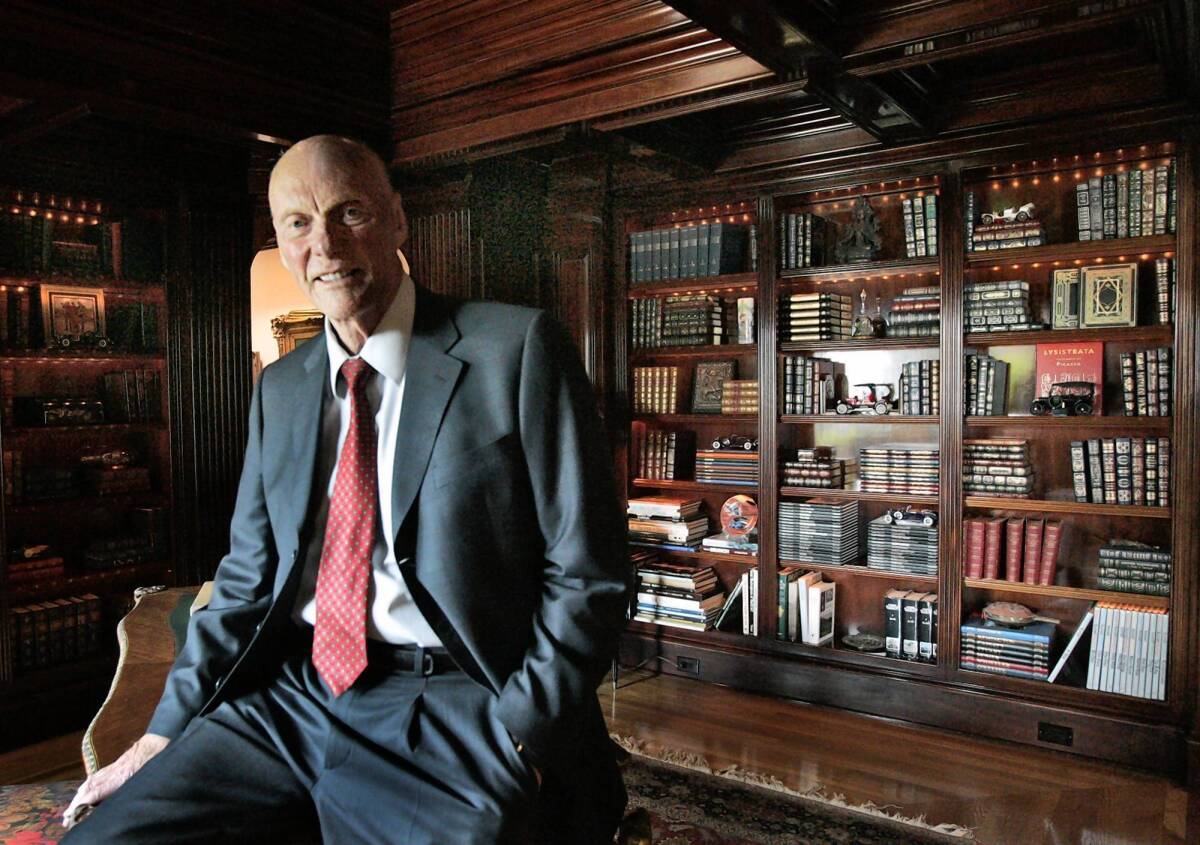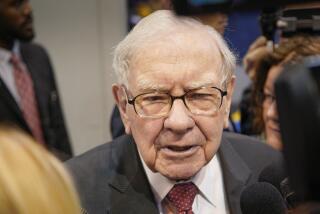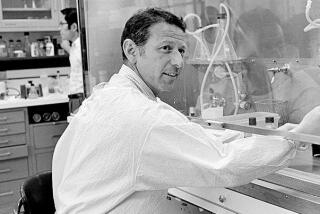Fred Kavli dies at 86; businessman gave millions to research

- Share via
Nobel prizes in science often go to researchers of an advanced age — many are retired by the time the call comes from Oslo saying they’ve won.
Fred Kavli, a Norwegian immigrant who got rich from a business he founded in Van Nuys making electronic sensors used in aviation and other fields, started giving out his own awards in 2008.
But his prizes — accompanied by a scroll, medal and $1 million — were designed to go to younger researchers.
And like the $100 million Kavli had already earmarked for universities, the prizes were designed to further basic research that examines scientific mysteries without a specific goal.
FOR THE RECORD:
Fred Kavli: In the Nov. 23 LATExtra section, the obituary of Fred Kavli, a business owner and philanthropist who funded basic scientific research, said that Nobel Prize notification calls to researchers come from Oslo. The Peace Prize is announced from Oslo. Calls to Nobel winners in economics, literature and the science categories originate in Stockholm. —
“Basic research is to work at the very edge, the very border of, of knowledge, and move that border forward,” Kavli said in a CBS radio interview in 2005. “You look and look for new secrets, and you don’t know where it’s going to lead you.”
Kavli, 86, died Thursday at his home in Santa Barbara, said the Kavli Foundation. He had contracted cholangiocarcinoma, a rare form of cancer, about a year ago, the foundation said.
He was divorced and is survived by two adult children.
In addition to his donations to scientific institutions and researchers, Kavli gave money to several nonprofit organizations in the Moorpark area, where his Kavlico Corp. eventually established its main operations. These included Moorpark College and a Boys & Girls Club.
And when a donor reneged on a major pledge to the Civic Arts Plaza in Thousand Oaks, Kavli gave $2.5 million to the operation in 1998. The 1,800-seat theater in the complex was renamed the Fred Kavli Theatre for the Performing Arts.
“You work all your life to make some money,” Kavli said in a Los Angeles Times interview that year. Philanthropy “sort of gives you a purpose to your life.”
Kavli (pronounced CAV-lee) was known as an intense, opportunistic businessman who had an acute sense of timing. In 2000 he sold Kavlico for $345 million. Four years later, in the wake of the bursting of the high-tech bubble, the company was sold for $195 million.
But the blue-eyed, balding Kavli, who spoke with a Scandinavian accent, did not outwardly have the trappings of a philanthropist whose fortune was estimated to be about $600 million.
“If you were to meet him at a cocktail party,” James Walker, then-president of Moorpark College, said in 1998, “you would never in a million years know what he does, because he’s so down to earth.”
Fred Kavli was born Aug. 20, 1927, on a small farm in Eresfjord, Norway, a mountain village along the Eira River.
Early on, he displayed a knack for business — at age 13, he and his older brother sold wood planks and wooden briquettes, both of which were in short supply in German-occupied Norway during World War II. They would also steal fuel oil from the Germans, and once found themselves in the middle of a snowfield, hoping low-flying enemy airplanes would not spot rifles tucked into their backpacks.
“If we’d run, we would have been done for,” Kavli told the New York Times in 2005. “That was very dangerous.”
He earned an engineering degree from what is now the Norwegian University of Science and Technology and arrived in California in 1956. Kavli worked for a company that made high-tech sensors for missiles, but he wanted to go out on his own.
In 1958 he placed a classified ad in the Los Angeles Times: “Engineer seeking financial backing to start own business.”
Kavli’s company grew to more than 1,500 employees and became one of the world’s largest suppliers of sensors for use in military and civilian aircraft, and in automobiles. He was the sole owner of the company when it was sold in 2000.
He also invested in real estate after taking night courses in the subject at UCLA and as of 2008, his real estate holdings were estimated to be worth about $300 million.
The foundation, based in Oxnard, was founded the year he sold his company. Its main goal was to fund research institutes in the fields of astrophysics, nanoscience, neuroscience and theoretical physics. To date there are 17 such institutes at universities, including Caltech, UC Santa Barbara, Stanford, Harvard, Yale, the University of Tokyo and the Chinese Academy of Sciences.
Roger Blandford, who was the first director of the Kavli Institute for Particle Astrophysics and Cosmology at Stanford, said in 2008 that the funding made a major impact in scientific fields that aren’t given much support in the commercial realm.
“It’s harder to make the case [for basic research] in a world looking for short-term answers,” Blandford said.
When Kavli announced his prizes in 2006, he spoke of the wonder he has felt for science, going back to his childhood in Norway.
“I used to ski across the vast white expanses of a quiet and lonely mountaintop,” he said. “In the stillness and solitude ... I pondered the mysteries of the universe, the planet, nature and of man.
“I’m still pondering.”
Times staff writer Robert J. Lopez contributed to this report.
More to Read
Start your day right
Sign up for Essential California for the L.A. Times biggest news, features and recommendations in your inbox six days a week.
You may occasionally receive promotional content from the Los Angeles Times.







